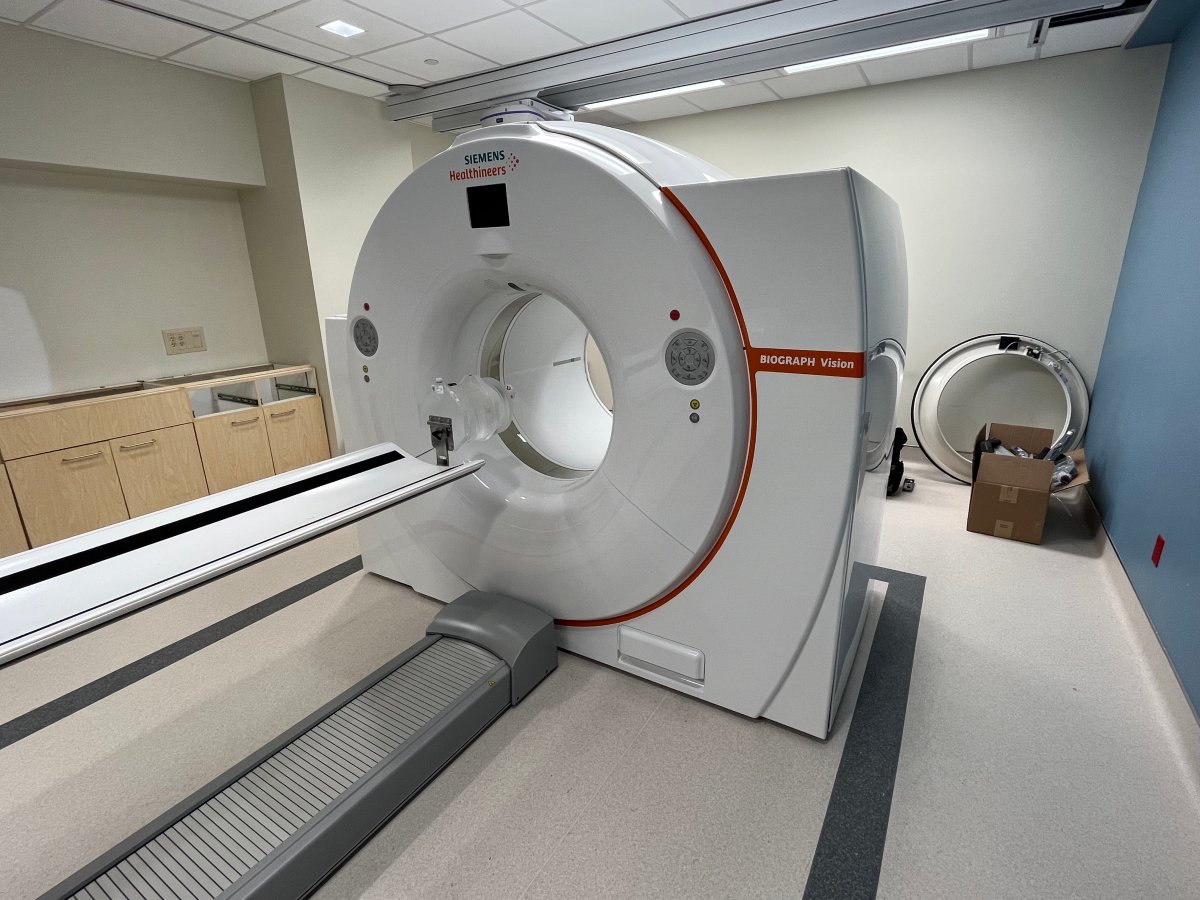Officials with London Health Sciences Centre are marking the arrival of a new state-of-the-art medical imaging device they say will improve access to cancer and disease diagnostics, speed up patient scan numbers, and bolster academic research at the organization.

The device, known as a PET/CT scanner, will allow medical staff to scan more patients more comprehensively when it comes to diagnosing cancer and other health concerns, including cardiovascular and neurologic diseases, a statement from LHSC reads.
The scanner, which will be operational later this month, utilizes both a PET (positron emission tomography) and CT (x-ray computed tomography) scanner in the same session. The scans are then combined together to create a detailed 3D image of structures inside the body, officials said.
Speaking with Global News on Wednesday, Dr. Jonathan Romsa, chief of LHSC’s Division of Nuclear Medicine, highlighted the impact that the new scanner will have when it comes to diagnosing cancers early, before structural changes are seen.
“Because it’s a molecular imaging machine, we can see those molecular changes … before we see that in terms of, say, the growth of a mass or in terms of a structural change in bone or elsewhere,” he said.

Get weekly health news
Dr. Romsa said this allows a health-care team to determine whether something looks to be more cancerous or more benign, as well as how far a mass has grown.
- Canada approves Moderna’s RSV vaccine, first of its kind for older adults
- ‘More than just a fad’: Federal petition seeks tax relief for those with celiac disease
- ‘Huge surge’ in U.S. abortion pill demand after Trump’s election win
- New Brunswick to allow medicare to pay for surgical abortions outside hospitals
“That’s very important information because that enables the cancer team to really tailor the type of treatment to the extent of the cancer, as well as the diagnosis.”
The scanner will also allow the patient’s medical team to better see whether the treatments are working, and whether cancer is returning in someone who has finished their treatment, he added.
In addition, the previous scanner limited the number of patients that could be seen on a daily basis — about 15 per day — hindering the ability of cancer patients to move on to the next stage of treatment.
“As imaging has become more important to the management and treatment decisions in cancer, the amount of patients queuing up for the study has increased,” he said.
“By having the scanner here, we’ll be able to do more patients and therefore, they won’t need to seek out other PET/CT cameras in Ontario in order to get timely access.”
London Health Sciences Centre is a regional cancer centre in Ontario, serving patients from across southwestern Ontario. It’s estimated that the new machine will be able to scan up to 25 patients per day, and has capabilities to go beyond that, according to Stephen Nelli, coordinator of nuclear medicine at LHSC.
“The advantage of this scanner is that it is much quicker because it has a larger detector for the radiotracers,” Romsa said.
“Therefore we can leverage that to decrease the dose of radiotracers that we give patients, resulting in a lower radiation dose, but it will also enable us to get the information that we need quicker for each study.”
The Children’s Hospital at LHSC will also benefit greatly from the new scanner, as pediatric patients will no longer have to travel outside of the region to get such medical scans, as has previously often been the case.
LHSC says the London Health Sciences Foundation and Ontario Health/Cancer Care Ontario helped fund the acquisition of the PET/CT scanner, which is the organization’s first such device.
— with files from Devon Peacock











Comments